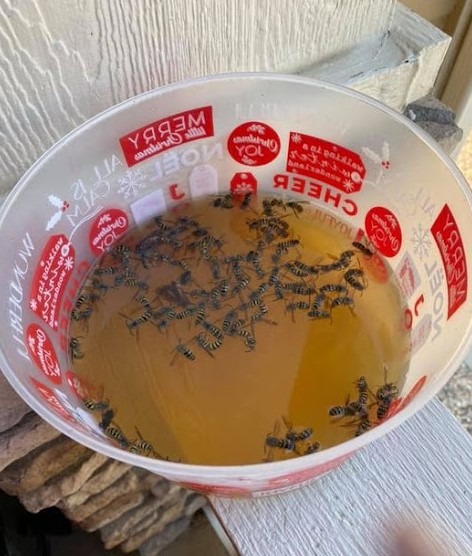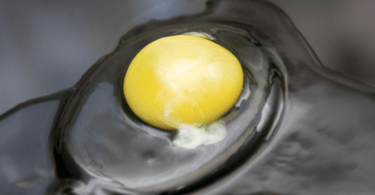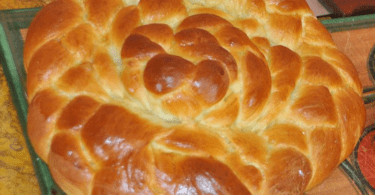Keep Wasps Away – As an individual who grapples with a severe allergy to bees, my perpetual quest for effective ways to deter bees, wasps, hornets, and other buzzing adversaries from our cherished residence and yard has become an indispensable part of my life. But let me assure you, even if you are not allergic, the venomous sting of these relentless insects is far from enjoyable, and the quest for a wasp-free outdoor haven is a pursuit shared by many. Fortunately, there exists a treasure trove of straightforward yet highly effective methods to keep these buzzing intruders at bay, ensuring that our open-air spaces remain sanctuaries of tranquility and safety!
1-Safeguard Your Food:
The joy of outdoor dining in pleasant weather is undeniable, but the presence of wasps can quickly turn the experience sour. To deter wasps from crashing your picnics or barbecues, it’s crucial to ensure that any food is adequately covered while being consumed. Moreover, promptly bringing your plates indoors once the feasting is over helps avoid leaving enticing leftovers that might tempt these pests to join the party.
2-Be Cautious with Fruit Trees:
Wasps possess an insatiable attraction to the sweet, decomposing fruit that inevitably drops from fruit trees. For those lucky enough to have fruit trees in their yards, regularly picking up any fallen fruit can play a significant role in deterring wasps from lingering around your fruitful bounty.
3-Steer Clear of Sweet Scents:
Wasps, much like mosquitoes, have a keen affinity for sweet fragrances, including those emanating from perfume, scented lotions, and even fragrant hair products. As such, it is prudent to exercise caution and avoid wearing strongly scented products when planning to spend time outdoors, reducing the risk of unintentionally inviting these unwelcome guests.
4-Use a Repellent:
Enhance your arsenal against wasps by considering the use of a wasp repellent spray when indulging in outdoor activities. You can easily acquire commercially made wasp repellents or opt for a more personalized touch by concocting your own repellent with a few drops of invigorating peppermint essential oil blended with water.
5-Grow Wasp Deterrent Plants:
Nature, in its wisdom, offers a variety of plants that prove unpalatable to wasps. By thoughtfully incorporating plants like spearmint, lemongrass, thyme, or citronella into your gardens or patio pots, you can create a natural barrier that dissuades wasps from settling in your sacred outdoor spaces.
6-Install a Decoy Nest:
Employ a clever trick of nature to your advantage! Wasps avoid establishing nests in areas where another nest already exists. Consider the strategic placement of decoy nests in your front and back yard during the spring months to discourage wasps from building nests nearby.
7-Maintain Your Yard:
In the natural world, several wasp species favor nesting in holes, tunnels, brush piles, and decaying wood. By conscientiously keeping your yard tidy, filled with vibrancy but devoid of clutter, you can limit the potential nesting spots available to these buzzing intruders. Ensure that holes are filled, and heaps of wood, brush, and similar materials are removed from your outdoor sanctuary.
8-Implement a Wasp Trap:
For those contending with smaller wasp populations, a practical solution lies in the form of wasp traps readily available in home and garden or hardware stores. These affordable and straightforward traps can effectively capture and deter wasps, providing a measure of control over the situation.
9-Look After Your Home:
While most of our focus tends to gravitate towards preventing wasps in our outdoor spaces, it is equally critical to secure our homes against their infiltration. To keep these uninvited guests from entering through the cracks and crevices of doorways and windows, make sure to seal any potential entry points. Regular maintenance checks are instrumental in identifying and addressing such vulnerabilities.
10-Remove Nests Safely:
In the unfortunate event of a severe wasp infestation, the root of the issue is often a nearby nest. When faced with such a predicament, we strongly advise against attempting to remove the nest yourself, as this can be a complex and hazardous task. Instead, enlist the services of a professional who possesses the knowledge and expertise to undertake the removal safely. The investment in professional assistance is well worth the avoidance of potential stings, which can number in the hundreds!
11-Clean Thoroughly After Nest Removal:
Successfully removing a wasp nest is only half the battle. These persistent insects can leave behind a potent pheromone trail that attracts other wasps to the location, where they may be tempted to construct a new nest. To erase any lingering trace of the previous nest, clean the area thoroughly with hot, soapy water, and rinse it well, effectively eliminating any remaining scent.
12-Secure Your Car:
Have you ever found yourself uncomfortably trapped in your car with an unwelcome wasp as your uninvited passenger? It’s an experience we all want to avoid! A simple yet ingenious method to keep wasps out of your vehicle and encourage any that do find their way in to leave promptly involves placing some mint leaves in a mesh bag and keeping it in your car. The invigorating aroma of mint serves as a natural deterrent, helping maintain a wasp-free zone within the confines of your car.
By embracing these diverse strategies and incorporating them into your wasp-wary lifestyle, you can create a harmonious coexistence with nature while ensuring your open-air spaces remain blissfully free from buzzing intruders. Through these combined efforts, you’ll transform your residence and yard into havens of serenity, where the threat of wasps is merely a distant memory, and the joys of outdoor living can be savored to the fullest extent!


 Flip it!
Flip it!





